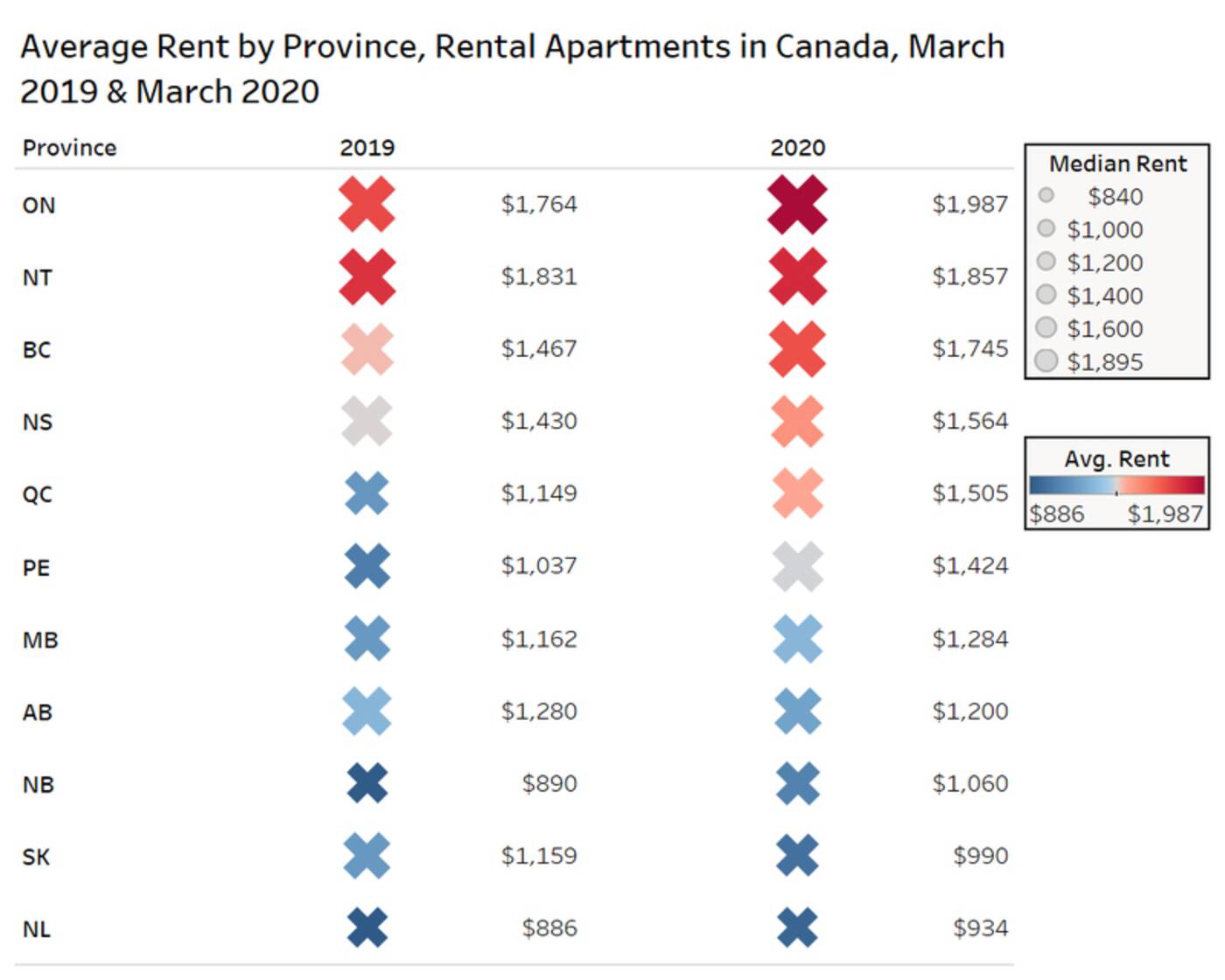
Here's how the pandemic is affecting rent prices across Canada
It's an unfortunate time to be looking for a new apartment pretty much anywhere in Canada right now as the coronavirus pandemic keeps most tenants locked down in their current digs.
Rent prices could fall across the country by as much as 20 per cent by the time COVID-19 is resolved, according to some analysts, but new data from Bullpen Research and rentals.ca suggests we're far from that point yet.
The average rent for all Canadian property types actually went up 1.0 per cent between February and March of 2020, reaching $1,842 per month nationwide.
Alberta was, in fact, the only major province to experience a monthly decline in March, dropping by 0.6 per cent from February.
Rents in B.C. went up 3.9 per cent on average last month (from $1,885 to $1,959 and Ontario posted a month-over-month increase of 1.5 per cent between February and March with prices rising from $2,212 to $2,244.

Image via rentals.ca
Year over year, however, rents are down 1.2 per cent nationwide — mostly on account of Saskatchewan and Alberta, both of which had been experiencing marked economic slowdowns even before the pandemic hit.
The average price of units listed in Saskatchewan on rentals.ca dropped a whopping 14.4 per cent between March of 2019 and March of 2020 while Alberta saw a decrease of 5.2 per cent, year over year.
Rents were generally higher this March than they were last March in the rest of Canada.
"Manitoba, which is often lumped into the same discussions as Alberta and Saskatchewan, was experiencing strong rental apartment market conditions before the pandemic, with the average unit available for $1,284 per month on average in March, 10.5% more than a year earlier," explains Bullpen Research president Ben Myers.
"Ontario has the highest average rental apartment asking rents at $1,987 per month, which is an increase of 12.6% year-over-year, with the median rent up 13.1% annually."
In Quebec, where the average apartment currently costs just over $1,500 per month, rental rates are up 30 per cent annually. Rents dropped, however, between February and March of 2020 in Montreal, Quebec City and Gatineau by 1.6 per cent, 0.6 per cent and 3.7 per cent respectively.

Image via rentals.ca
It's hard to say overall how the pandemic will affect rental rates based on March's numbers alone, being that much of the country went into lockdown during the second half of the month.
Either way, it's safe to say (as Myers does) that "the housing market is not operating normally."
"Most provinces have prohibited evictions, as many tenants can’t make rent due to either a temporary closing of their place of employment, or being laid off due to COVID-19," writes the real estate analyst in the latest national rent report from rentals.ca.
"Considering all these factors, there is concern that average rental rates across Canada could plummet as much as 20%. March data might be too early to assess the impact of the pandemic on the Canadian rental market, but if the results are any indication of what is to come, a 20% decline isn't likely."
Latest Videos
Join the conversation Load comments







